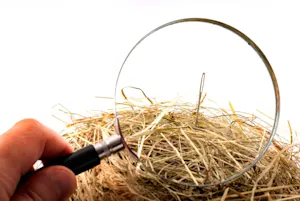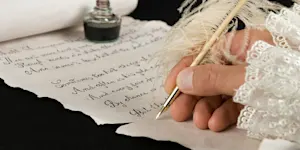What Makes This Word Tick
"Lauded" is a term that packs a celebratory punch. When something or someone is lauded, they're given praise or acclaim—often publicly. There's a ring of reverence in the word, as if a virtual round of applause is implied every time it's used. It’s like a gold star for achievements or qualities that can't help but stand out.
If Lauded Were a Person…
Imagine a charming raconteur who always knows the right words to say, a figure who effortlessly works the room at a gathering. This person would be the one everyone wants to sit next to at the dinner table. They’re the type to bring radiance into conversations, sprinkling compliments that lift the room’s spirits.
How This Word Has Changed Over Time
"Lauded" has maintained its glowing reputation throughout the years. Its roots in high praise haven’t dimmed, though the settings for its use have evolved. Once primarily the domain of poets and public speakers, it now finds its way into everyday use, recognizing both grand achievements and simple, heartfelt efforts alike.
Old Sayings and Proverbs That Use Lauded
While "lauded" itself doesn't star in classic proverbs, its sentiment endures in sayings like, "Give credit where credit is due." These expressions speak to the timeless value of acknowledging and celebrating worthy acts.
Surprising Facts About Lauded
Did you know that "lauded" stems from the Latin "laudare," meaning to praise? This word shares roots with "applaud," making it a verbal round of applause. It's a connection that echoes the profound human desire to recognize effort and excellence.
Out and About With This Word
You'll often find "lauded" in the arts, entertainment, and academia. Whether it's a critically lauded film or a scholarly article receiving accolades, its presence frequently indicates accolades and recognition from peers and critics alike.
Pop Culture Moments Where Lauded Was Used
Remember when Meryl Streep was lauded for her acceptance speech at the Golden Globes? Such moments illustrate the word’s cultural footprint, leaving an indelible mark on the evening's conversations and Twitter feeds.
The Word in Literature
"Lauded" tends to appear in works that cherish achievement—biographies of famous figures, for instance. It resonates in lines that remember an individual's triumphs or contributions, lending an air of distinction to the prose.
Moments in History with Lauded
Think of historic speeches where achievements were celebrated, like Martin Luther King Jr.'s "I Have a Dream" speech. While "lauded" may not have been used directly, the essence of lauding fills the spirit of such historical moments.
This Word Around the World
While "lauded" holds similar meanings across English-speaking countries, translating it might yield words like "elogiado" in Spanish or "loué" in French. Each carries nuances unique to its culture but retains that essential note of admiration.
Where Does It Come From?
From the Latin "laudare," and later Old French "lauder," the word's journey into English retains its meaning across the ages. This longevity underscores the universal need to express appreciation and acknowledgment.
How People Misuse This Word
Occasionally, "lauded" might be used sarcastically, especially in contexts where acclaim wasn't entirely warranted. Reading between the lines can reveal whether the praise is genuinely deserved or a case of exaggerated acknowledgment.
Words It’s Often Confused With
Applaud: While both involve praise, "applaud" is more about physical clapping rather than spoken commendation.
Praise: This is more general, lacking the specific context of public acclaim that "lauded" often implies.
Commend: While similar, it’s typically less public and more about approval than outright praise.
Additional Synonyms and Antonyms
Synonyms include acclaimed, praised, and extolled, while antonyms like criticized, derided, and ignored capture the opposite of being lauded.
Want to Try It Out in a Sentence?
Despite being newly published, her book was widely lauded for its insightful portrayal of historic events.
















